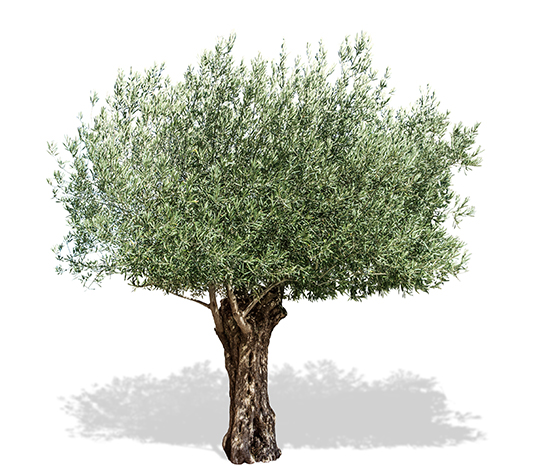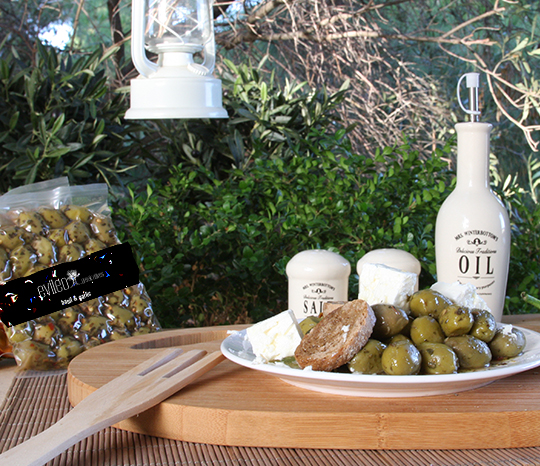Greek Olives
The olive groves of Greece are a living heritage associated with many areas of life. EVILEO follows the thread of history and nutrition, through the olive, offering quality products.
olives

The majesty of a tree...
and the Greek heritage
The olive tree has been considered sacred since the ancient times when it was protected by the goddess Athena. As the ancient myth reminds us, in the struggle between the gods for the election of the protector of the city of Athens, that took place on the sacred rock of the Acropolis, Athena became the winner, offering to the Athenians the first olive tree in the world that rose at the very same point where her spear struck. The olive tree was useful for nutrition, lighting, heating, health and beauty of the Athenians. The fruit of the olive tree, known as olive, is a core ingredient in the Mediterranean nutrition; it is edible and also the source of olive oil. Olive is a rich source of monounsaturated fatty acids (MUFA). It provides fiber, minerals and Vitamin E, a natural antioxidant. It is believed that vitamin E, can slow down lesions in cell membranes and fight osteoporosis.
Perfection in
every of our products

The Mediterranean diet…
The Mediterranean diet is a modern nutritional recommendation based on the dietary patterns of Greece and the rest of Southern European countries in the 1940s and 1950s. The main characteristics of the diet include high consumption of olives and olive oil, legumes, cereals, fruits and vegetables, high consumption of fish as well as moderate consumption of dairy products such as cheese and yoghurt, and wine. The most important ingredient for a successful Mediterranean is the olive, for its exquisite benefits to the human health and to life itself. The concept of the Mediterranean diet was first publicized by the American biologist Ancel Keys who used it to describe the dietary model applied by people living in the seven Mediterranean countries.
A unique feeling...
At the International Conference on Mediterranean Nutrition in 1993 it was determined what is to be considered healthy Mediterranean nutrition and it was in 1995 that a team of scientists from Harvard University created the “Mediterranean Diet Pyramid” that contains:
• Olives and olive oil as the main source of fats including monounsaturated fatty acids (MUFA)
• Plenty of fiber (fruits, vegetables, bread / cereals, potatoes, legumes, fruits).
• No processed products
• Dairy products (mainly cheese and yoghurt) daily in small to moderate quantities.
• Fish and poultry in small to moderate quantities.
• Red meat twice a month
The nutritional composition of the Mediterranean diet results in low saturated fat and cholesterol content as well as in high carbohydrate and fiber content. Daily consumption of olives and olive oil results in a high content of monounsaturated fatty acids in the diet.
The Mediterranean diet involves a set of skills, knowledge, rituals, symbols and traditions concerning crops, harvesting, fishing, animal husbandry, conservation, processing, cooking, and particularly the sharing and consumption of food.

